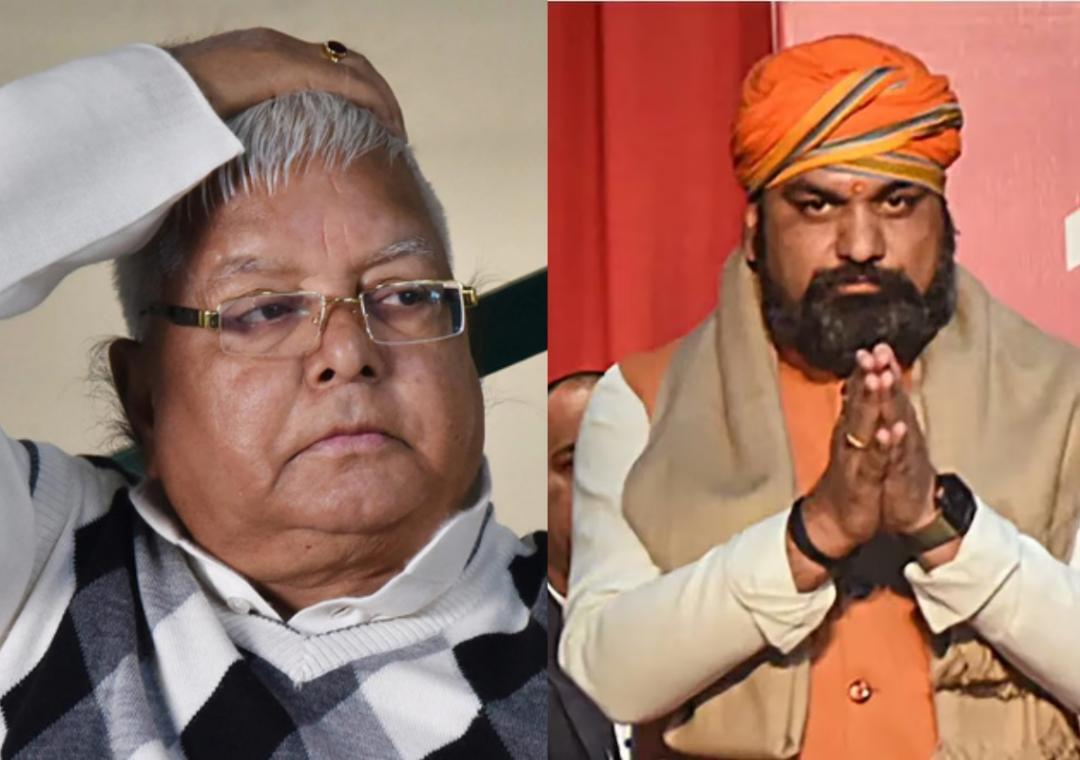 |
|
The political landscape of Bihar is once again rife with tension, sparked by a recent exchange between RJD chief Lalu Prasad Yadav and Bihar Deputy Chief Minister Samrat Choudhary. The controversy began with Lalu Prasad's scathing comment regarding Chief Minister Nitish Kumar and his upcoming 'Mahila Samvad Yatra' (Women's Dialogue Journey). Prasad's statement, though not explicitly detailed in the provided text, implied an accusation of inappropriate behavior towards women, suggesting that Kumar would be ‘ogling at women’ during the event. This provocative remark immediately ignited a firestorm of criticism and retaliatory statements.
Samrat Choudhary, representing the Janata Dal (United) party, responded with a sharp rebuke, labeling Lalu Prasad's statement as indicative of mental illness. Choudhary's words, while seemingly harsh, were delivered in a tone suggesting genuine concern for Prasad's well-being. His assertion that Lalu Prasad "needs to get treated at a hospital" is not just a political attack; it carries a subtle undertone of empathy, acknowledging the potential seriousness of the situation. This delicate balancing act, attempting to critique the political opponent while also expressing compassion, is indicative of the complexities and sensitivities within Bihar's political arena.
The incident highlights the deeply entrenched rivalry between the RJD and JD(U), two of Bihar's most influential political parties. This conflict extends beyond mere political posturing, as it intertwines with personal attacks and accusations. Lalu Prasad, a prominent figure in Indian politics known for his fiery rhetoric and charismatic personality, is presently facing health challenges, a factor that may have influenced Choudhary's statement. The line between political strategy and genuine concern is often blurred in such instances, leaving observers to decipher the underlying motivations of the various players involved. The use of personal attacks, rather than focusing on policy differences, reflects a trend increasingly prevalent in contemporary political discourse, where emotional appeals and ad hominem attacks overshadow constructive dialogue and policy debates.
The incident also raises questions about the overall tone of political discourse in India. While robust debate and criticism are crucial aspects of a healthy democracy, personal attacks and the use of inflammatory language can be detrimental. This case emphasizes the importance of maintaining a respectful approach, even in the midst of heated political battles. The potential implications for the upcoming Mahila Samvad Yatra are significant. Prasad's statement casts a shadow over an event designed to promote women's empowerment and engagement in political processes. The ensuing controversy risks overshadowing the actual purpose of the yatra, diverting attention away from critical issues facing women in Bihar and potentially undermining its intended impact.
The future implications of this exchange remain unclear. It's possible that this incident will escalate, leading to further acrimonious exchanges between the two parties. Alternatively, it may serve as a catalyst for a more restrained and respectful tone in the upcoming political campaign. The response from other political parties will be crucial in determining the trajectory of this controversy and its influence on the overall political landscape of Bihar. In conclusion, the seemingly simple exchange between Lalu Prasad and Samrat Choudhary reveals a complex interplay of political rivalry, personal attacks, and concerns about the state of political discourse in Bihar and potentially India more broadly.
